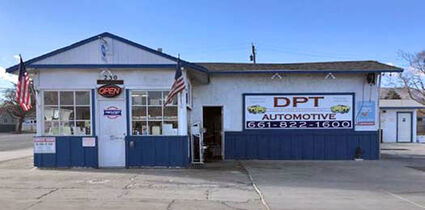Four car noises that should send you to your mechanic
Helpful tips from Don’s Pro Tech Automotive
November 6, 2021
Almost every driver has had to deal with car noises – those sometimes annoying, sometimes alarming signals from your vehicle that something unusual might be going on. Whether it’s a bang, a clunk or a rattle, anytime your automobile talks out of turn is cause for you to pay a little closer attention to what it might be trying to tell you. While you should always check out any suspicious noise, the handy guide below lays out the sounds that warrant the most attention.
Why is my car making a grinding noise?
Most of the time when you hear car noises that sound like grinding it is an indication that one of your vehicle’s components has worn out. If the grinding gets worse when you hit the brake pedal — or if you can feel it through the pedal itself — it is not something you should ignore. The same can be said for a grinding sound that emanates from a specific wheel while the vehicle is rolling, even if it’s in neutral. This can be a sign that a wheel bearing needs to be replaced, which is not the kind of repair you can delay. Delaying a repair is not only dangerous for yourself and other drivers, it can also make the cost of the repair grow exponentially. If a wheel bearing degrades to the point of damaging the hub or spindle, you could be on the hook for hundreds of dollars to fix it right.
Why is my car making a rubbing noise?
Typically, most car noises that involve a rubbing sound mean just that — some part of your automobile is touching another part when it really shouldn’t. This can be as simple as a piece of loose trim rubbing on a tire, or a tire touching the inside of a wheel well during a turn, but don’t ignore it! Two parts rubbing together often leads to at least one of them failing over time. It doesn’t take long for one part to make a hole in another either, so get it checked out ASAP.
Why is my car making a clunking noise?
Clunking car noises usually indicate that something is loose or worn out, either in your vehicle’s drive train or its suspension system. If you hear a clunk when going over a speed bump or hitting a pothole — and if that clunk is accompanied by a more metallic sound — that usually points to a suspension issue, which could mean a bushing, control arm, strut, strut bushing, or shock absorber needs to be replaced. If the clunk happens when you hit the gas pedal or shift gears, then you are most likely looking at a U-joint or CV joint that is on its way out. An engine mount may also be the culprit if the sound happens when shifting into forward or reverse.
Why is my car making a pinging noise?
If you hear a distinct ping coming from your engine when you accelerate, especially uphill, then you might not be using the right type of gasoline in your car. Every vehicle requires a certain octane level to resist “knock,” which is a term used to describe the fuel in each cylinder igniting before the spark plug has fired. Knock can damage your engine and it robs you of both power and fuel mileage. Some high performance engines require high octane fuel, but so do some luxury vehicle engines. Using less expensive gas (which is usually lower in octane) may save money now, but it can cause expensive problems later. Check your owner’s manual to find out what the minimum octane rating should be for your car, and if filling up with that type of gasoline doesn’t fix the issue, you should stop in at Don’s Pro Tech (DPT) to find out what might be wrong with your motor.
Have your unusual vehicle noises diagnosed by one of the knowledgeable mechanics at DPT. To make an appointment or chat with one of the service advisors or technicians, visit the shop at 230 E. Tehachapi Blvd. or call (661) 822-1600.




